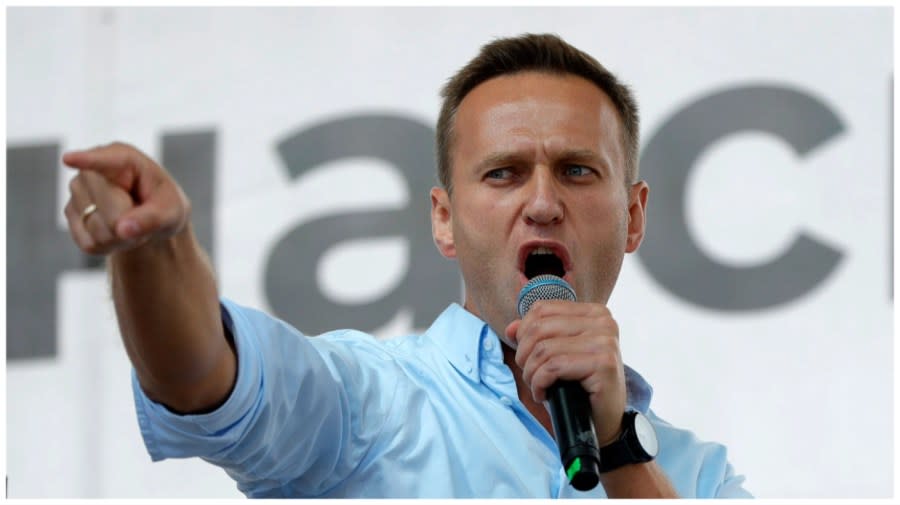Navalny aide says prisoner exchange talks were in late stage before death in prison

- Oops!Something went wrong.Please try again later.
- Oops!Something went wrong.Please try again later.
- Oops!Something went wrong.Please try again later.
Russian opposition leader Alexei Navalny was close to being freed in a prisoner exchange shortly before his death in a remote Arctic penal colony, one of his close allies claimed.
In a YouTube video published Monday, Maria Pevchikh — the chair of Navalny’s Anti-Corruption Foundation — said negotiations were in the “final stage” on the eve of Navalny’s death to free the imprisoned Kremlin critic in exchange for Vadim Krasikov, a convicted Russian killer serving a life sentence.
Judges in Germany said Krasikov acted on the orders of Russian authorities and was given a false identity, passport and other resources to carry out the killing of Zelimkhan “Tornike” Khangoshvili, a Georgian citizen, in Berlin, The Associated Press reported.
Two unidentified U.S. citizens were also slated to be part of the exchange, Pevchikh said Monday.
“We all understand why Putin killed Navalny. Navalny was a real politician, a man followed by millions, a man whose ideas people risked their freedom and their lives. Navalny was everything that Putin could never be, and Putin hated him for it,” Pevchikh said, reiterating the allegation that Russian President Vladimir Putin had Navalny killed.
“But why did he [Putin] kill him now? Why Feb. 16? I know the answer to that question, and I have neither the slightest reason nor desire to hide it,” Pevchikh added. “Alexei Navalny could have been sitting in my place right now, today. This is not a figure of speech. It could and should have happened. Navalny was supposed to be free in the coming days because we had achieved a decision on his exchange.”
Navalny died in prison on Feb. 16 at the age of 47. He was serving a 19-year sentence on charges of extremism and was recently moved from a different prison to the highest-security-level facility in Russia.
Pevchikh on Monday claimed discussions of a “humanitarian exchange,” or swaps of Russian spies and political prisoners, began two years ago and involved months of research and meetings.
“Officials, American and German, nodded understandingly, talked about how important it was to help Navalny and political prisoners, shook hands, promised and did nothing,” Pevchikh said, adding later that “acquaintances of politicians” eventually assisted in these efforts and conducted unofficial negotiations with Putin and his team.
The plan was approved this past spring, and Putin was offered the exchange in early February, Pevchikh said.
“I tell this story so that you have an answer to the question — why was Navalny killed now? Putin was clearly told that the only way to get Krasikov is to exchange him for Navalny,” she said. “’Hold on,’ thought Putin, ‘I can’t tolerate Navalny being free and since they are willing to exchange Kraskiov on principle, then I just need to get rid of the bargaining chip.”
She did not cite any evidence to back up this allegation.
Asked about Pevchikh’s claim at a news conference, German government spokesperson Christiane Hoffmann said she couldn’t comment, the AP noted.
Navalny’s family and allies spent the past several days demanding Russian authorities return his body to them after authorities claimed it would be under some sort of “chemical examination” for two weeks. Last Saturday, his spokesperson confirmed his body was returned to his family.
A slew of Western leaders, including President Biden, have pinned the blame for Navalny’s death on Putin, but Russia claimed he died of natural causes. His mother was told that her son died from “sudden death syndrome,” a general term used to describe various cardiac syndromes that can prompt cardiac arrest and death.
For the latest news, weather, sports, and streaming video, head to The Hill.

